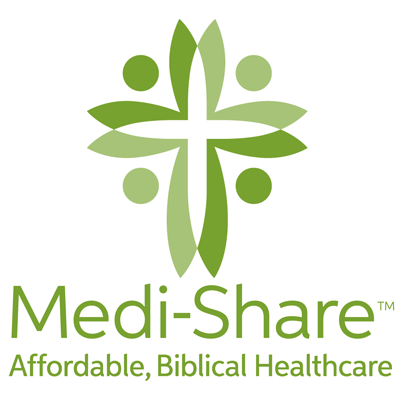Health co-ops filling Covered CA gap

 As rates continue to rise sharply for the Affordable Care Act, or Obamacare, in the new year people are looking for more affordable alternatives. One is medical cooperatives.
As rates continue to rise sharply for the Affordable Care Act, or Obamacare, in the new year people are looking for more affordable alternatives. One is medical cooperatives.
That’s especially true here, where the Obamacare implementation is called Covered California.
The Wall Street Journal just ran an article, “California Man Opts Out of Traditional Health Insurance with Alternative Plan.” It reported on how John Lavey, a property insurance broker in Orange County, joined a Christian medical cooperative called Medi-Share.
In pitching the ACA back in 2009, President Obama promised numerous times, “If you like you health care plan, you can keep it.” But Lavey couldn’t. After Affordable Care Act rules disqualified his prior health plan, he was forced to take a new plan that doubled his premiums.
Lavey said his health care costs are $400 less per month under Medi-Share than under Obamacare. And he doesn’t have to accept a health plan he never wanted.
But a religious-based health care cooperative is not insurance, thus it is not regulated. Members pay a fixed fee each month and the money comes out of the cooperative’s common pot of funds when he goes to the doctor.
Obamacare exemptions only apply to religious-based health care co-ops established before 2000. That means Medi-Share of Florida, Samaritan Ministries of Illinois, and Ohio-based Christian Healthcare Ministries and Liberty Healthshare are the only cooperatives with Obamacare exemptions.
No guarantee
Courts have ruled Christian health care cooperatives can operate as long as they disclose there is no guarantee that members’ bills will be paid in full or in every case.
And Christian health care cooperatives have some requirements that wouldn’t appeal to everyone. According to the Journal, “To join Medi-Share, consumers have to sign an attestation of Christian faith and promise to abstain from tobacco, illegal drugs and sex outside of marriage; certain things, such as abortion and contraception, aren’t covered.”
The Reason Foundation did a case study of one family in 2013 that belonged to Samaritan Ministries. A family of three would pay $4,400 per year, while private insurance under Obamacare would only cost about $2,500 because two-thirds of it would be subsidized.
But the Lavey family was saving $400 per month over a private insurance plan approved under Obamacare.
Not a scam
As political scientist Walter Russell Mead of Bard College has noted, medical cost-sharing associations are unique in that they use social capital to contain costs. A 2012 statistical study by the World Health Organization found there was a strong causal relationship between social capital and individual health.
Members refrain from running up costs because that will mean less for both themselves and others. Additionally, Christian health care cooperatives actively negotiate with doctors and hospitals to reduce costs on a case-by-case basis.
Concluded a 2013 comprehensive study by Benjamin Boyd, staff attorney for the Alabama Supreme Court, published in the Journal of Law and Health, “Health Care Sharing Ministries are not some kind of scam or ‘part of the problem(s) with the American health care system’ but are ‘part of the solution.’”
As of April 2014, Medi-Share had 6,916 members in California, but is growing rapidly mainly due to statewide radio ads. It’s part of a small but burgeoning Christian faith-based alternative to Obamacare in California that seems to fit a gap in the health care financing spectrum.
Comparison of Top Three Christian Health Care Cooperatives
| Samaritan Ministries | Christian Healthcare Ministries | Medi-Share | |
| Members U.S. | 113,000 | Not available | 110,000 |
| Total Gross Bills Submitted 2013 | $893 million | Not available | $1.182 billion |
| Responsibility per Incident | $300 | $500 (gold) $1,000 (silver) $5,000 (bronze) |
Varies |
| Monthly Cost * Family of 3 |
$405/month | $450/month (gold) $255/month (silver) $135/month (bronze) |
$200 to $599/month |
| Sharing Limits | $250,000 per incident | $125,000 per incident | Limits negotiated with providers |
| Co-pay | Not available | Not available | $35 doctor visit; $135 ER visit |
| Pre-existing conditions | Cancer must be cured for 7 years | Step up plan | No lifetime or incident caps |
| Discounts | None | Not available | 20% for being healthy |
| Provider Network | Any doctor | Any doctor | Preferred provider network |
| Available | All states | All states | All states except Montana |
| Sources: 1. Samaritan Ministries vs Christian Healthcare Ministries 2. Medishare 3. Health Care Sharing Ministries – Comparison |
|||
Related Articles
Critics demand accountability for education-funding tax prior to extension vote
Proponents of a 12-year extension of a temporary tax used to bolster education funding may ask voters to consider the measure prior
High-speed rail lawsuits pit CA vs. USA
Like the famous 1860s race to build a railroad across America to California, an epic battle is shaping up
Update: Critics charge SF/Oakland Bay Bridge still unsafe
New questions have arisen about the subject of several stories I wrote last spring about the construction debacles on the San Francisco/Oakland Bay




